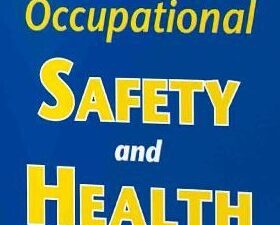Supply Chain Analysis and Optimization
- Description
- Curriculum

In today’s globalized world, efficient and optimized supply chains are the backbone of successful businesses.
Understanding how goods move from raw materials to finished products in the hands of customers is critical for ensuring profitability and customer satisfaction.
This comprehensive course equips you with the knowledge and skills to analyze and optimize your supply chain. We’ll delve into core supply chain concepts, explore analytical techniques, and introduce optimization models to improve efficiency, reduce costs, and enhance overall supply chain performance.
Whether you’re a supply chain professional, business analyst, or anyone seeking to streamline your organization’s operations, this course empowers you to become a supply chain optimization expert!
Course Objectives:
- Gain a thorough understanding of the core concepts of supply chain management, including its components, functions, and strategic importance.
- Develop skills for effectively mapping and analyzing a supply chain, identifying bottlenecks and potential areas for improvement.
- Explore key performance indicators (KPIs) used to measure supply chain performance, such as inventory levels, lead times, and delivery accuracy.
- Master analytical techniques for demand forecasting, inventory management, and transportation planning within the supply chain.
- Learn the fundamentals of optimization modeling, including linear programming and simulation modeling, as applied to supply chain problems.
- Explore techniques for risk mitigation and supply chain resilience in the face of disruptions and uncertainties.
- Analyze best practices for implementing and managing supply chain collaboration with partners and vendors.
- Understand the impact of emerging technologies like blockchain and artificial intelligence on supply chain optimization.
- Develop strategies for continuous improvement and optimizing your supply chain for long-term success.
Course Highlights:
Supply Chain Fundamentals:
- Demystify the concept of supply chain management and its role in organizational success.
- Explore the various components of a supply chain, including sourcing, manufacturing, distribution, and customer service.
- Analyze the key functions of supply chain management, such as planning, procurement, inventory management, and logistics.
- Understand the strategic importance of an efficient and optimized supply chain for competitive advantage.
Supply Chain Mapping and Analysis:
- Develop skills for effectively mapping and visualizing a supply chain, identifying key players, processes, and information flows.
- Learn techniques for analyzing supply chain performance using key performance indicators (KPIs) like inventory levels, lead times, and delivery accuracy.
- Identify bottlenecks and potential areas for improvement within the supply chain based on data analysis.
Analytical Techniques for Supply Chain Management:
- Explore key analytical techniques used for:
- Demand forecasting: Predicting future customer demand for products.
- Inventory management: Optimizing inventory levels to minimize costs and ensure stock availability.
- Transportation planning: Designing efficient transportation routes and modes for product delivery.
Supply Chain Optimization Models:
- Master the fundamentals of optimization modeling in the context of supply chain problems.
- Learn about linear programming and simulation modeling techniques used to optimize decision-making around inventory levels, production planning, and resource allocation.
Risk Management and Resilience:
- Explore techniques for managing risks and building supply chain resilience in the face of disruptions like natural disasters and geopolitical events.
- Develop strategies for mitigating the impact of potential disruptions and ensuring business continuity.
Supply Chain Collaboration:
- Analyze best practices for implementing and managing supply chain collaboration with partners and vendors.
- Understand the benefits of collaboration, such as improved communication, reduced costs, and enhanced responsiveness to market changes.
Emerging Technologies in Supply Chain:
- Explore the impact of emerging technologies like blockchain and artificial intelligence (AI) on supply chain optimization.
- Analyze how these technologies can enhance transparency, traceability, and overall supply chain efficiency.
Continuous Improvement:
- Develop strategies for continuous improvement and optimizing your supply chain for long-term success.
- Learn techniques for benchmarking performance against industry standards and identifying areas for ongoing improvement.
Target Audience:
- Supply chain professionals, including planners, analysts, and logistics managers.
- Business analysts, project managers, and anyone involved in optimizing business operations.
- Procurement specialists seeking to improve supplier relationships and manage sourcing strategies.
- Business leaders and decision-makers interested in gaining a deeper understanding of supply chain management.
- Anyone curious about supply chain optimization and its role in a globalized economy.
-
1Nvidia New Technologies Slides
Welcome to your first slider tutorial. This slides will start with a simple introduction. Then, You will open up google cause I"ll show you where you can download the blender software and which version of it will we be using in the entire course period.
Note: The download link is available with the lecture, plus the .pdf file is also included for you to download if you still need help downloading the software.
-
2Engine Target Audience
-
3Quiz: Mobile / Native Apps
-
4Realistic Graphic on UE4
-
5Volta GPU for optimization.
The Tensor Core GPU Architecture designed to Bring AI to Every Industry. Equipped with 640 Tensor Cores, Volta delivers over 100 teraflops per second (TFLOPS) of deep learning performance, over a 5X increase compared to prior generation NVIDIA Pascal architecture.
-
6Deep Learning








